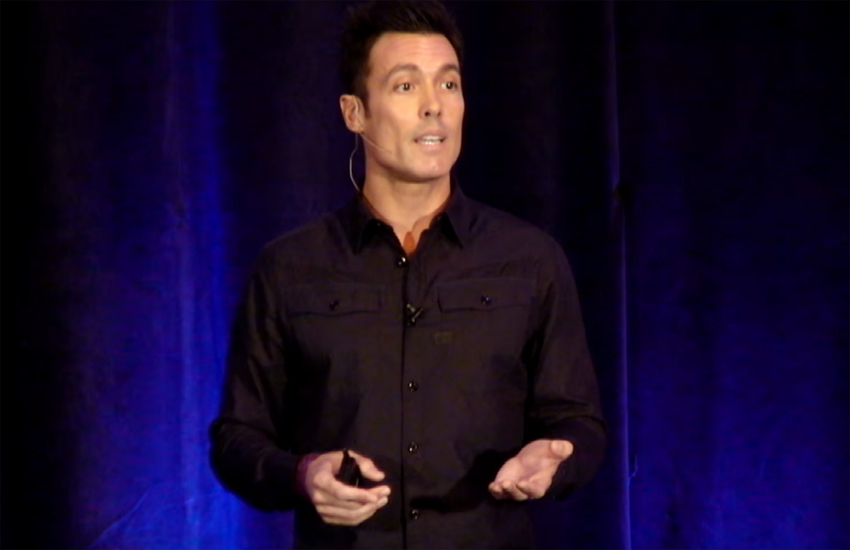YouTube
Chris Tompkins says answer honestly if young kids ask about relationships
A gay teacher and uncle is finding internet fame with an inspiring Tedx talk. In it, Southern California educator Chris Tompkins explains in 15 minutes the importance of talking to young kids about LGBT issues.
The reason? Because staying silent about sexuality sends a strong message that it’s something taboo or shameful.
Tompkins says the idea for the talk came originally from ‘a letter I wrote my family to address a conversation that wasn’t taking place.’
He told GSN, ‘The purpose of my talk is to prevent homophobia and bullying before they begin.’
In the talk, he says he was struck one day when a young nephew asked him at a family gathering if a woman present was his girlfriend.
[embedded content]
‘That question changed my life. A few years ago I wasn’t able to make it home for Christmas so when I was in town visiting my mom had all my relatives over including my childhood best friend Alyssa.’
It was whilst all sat down to eat that his six-year-old nephew Aaron ran up to ask the question about the woman being his girlfriend.
He says everyone laughed, because they knew she wasn’t his girlfriend, but it was an uncomfortable laugh. Tompkins felt himself go red and says that the rest of his family dismissed the question and carried on doing what they were doing.
He says that kids learn, ‘regardless of what we choose to say or not say.’
‘Most the of the parents I spoke with didn’t feel like their child was old enough to understand’
Later that night, he says he wondered why his nephew had asked the question and deduced that his sister – the boy’s mother – had never told him his uncle was gay.
‘She must believe something’s wrong with being gay.
‘I thought if my sister’s son was in the dark, what about the other kids I know.
‘I begin asking around and most the of the parents I spoke with didn’t feel like their child was old enough to understand. They seemed uncomfortable addressing the conversation, which was interesting to me as I remember knowing I was gay even as a young child. In fact, I was the same age as my nephew Aaron. I was six.
Tompkins says that if a child is old enough to ask if someone is someone’s girlfriend, they are old enough to know about gay relationships. He also argues that when parents try to hide something from a child, the child usually has some idea of what it is.
‘And if you didn’t know, you’d eventually find out and then believe that whatever it was must be bad because why else wouldn’t they want you to know.
‘Most of what we learn isn’t from what we think … learning is more than thinking, it’s from what we feel, sense and experience in our environments, including what we learn to believe from the things we aren’t told.’
‘My sister, not communicating with her kids about her gay brother, communicates something’
He goes on to say that children begin to learn about sexual attitudes from their parents between the ages of 3-5, and between 6-10 begin to show interest in pregnancy and gender roles. That’s when they begin to ask where babies come from or if someone is someone’s boyfriend or girlfriend.
He says, ‘My sister, not communicating with her kids about her gay brother, communicates something. It communicates being uncomfortable with the conversation. Which implies that it’s different, further perpetuating guilt, shame and the closet experience.
‘As a gay child, this is what I picked up from my surroundings.’
He goes on to explain the corrosive effects of shame and internalized homophobia – often fuelling mental health problems, addiction and suicide.
‘Having open conversations with children at a young age doesn’t put them at risk. Instead, it does the opposite. It keeps them from risk.’
He goes on to issue a challenge to his audience.
‘I have an invitation for you. Join me today by asking the kids in your life questions and answering theirs honestly. Have conversations. Don’t make assumptions. Validate and affirm them.
‘Ask yourself what messages you heard growing up that impact your life today.’







